Maduro discusses oil exports in Tehran as Iranian tanker arrives in Venezuela
Iran’s Oil Minister Javad Owji and visiting Venezuelan President Nicholas Maduro have exchanged views on bilateral energy cooperation, following the arrival of an Iran-flagged tanker in Venezuelan waters in yet another blow to Washington’s tough sanctions against Tehran and Caracas.
During their meeting on Monday, Owji and Maduro discussed issues related to fuel supplies as well as the export of petroleum products, petrochemical products, and petrochemical catalysts.
They also made decisions on the export of technical and engineering services, the reconstruction and modernization of refineries, and the development of oil and gas fields.
On Saturday, Iranian President Ebrahim Raeisi and his visiting Venezuelan counterpart Maduro signed a 20-year partnership agreement that aimed at bolstering bilateral cooperation in various fields.
The partnership agreement includes cooperation in science, technology, agriculture, oil and gas, petrochemicals, tourism as well as culture.
On the same day, an Iran-flagged tanker carrying about 1 million barrels of crude reportedly arrived in Venezuelan waters to deliver its shipment to state-run oil firm PDVSA.
The cargo is the third of Iranian crude supplied by Iran’s Naftiran Intertrade Co (NICO) to Venezuela’s state-run oil firm PDVSA following a supply contract providing the South American nation with lighter crude, Reuters reported on Monday, citing a shipping document.
In early May, the Suezmax tanker Sonia I departed from Iran’s Kharg Island port and touched waters close to Venezuela’s Amuay refinery after a month-long journey, according to an official notice of its arrival and Refinitiv Eikon vessel data.
Two other Iran-flagged tankers, the very large crude carriers (VLCCs) Dino I and Silvia I, had arrived last month at Venezuelan ports carrying the first cargoes of Iranian crude for Venezuela. They later loaded Venezuelan heavy oil and fuel for Iran in exchange, according to the tracking data and PDVSA’s schedules.
Iran has sent several cargos of fuel to Venezuela and helped in refinery repairs since 2020, frustrating Washington’s attempt to slap tough sanctions on both nations.
The expanding energy cooperation between Iran and its South American ally helps the latter convert its extra-heavy oil and boost its exports.
Last month, Venezuela began importing Iranian heavy crude, widening a swap agreement signed last year to exchange Iranian condensate for Venezuelan heavy crude.
The contract signed by Iranian and Venezuelan state companies in May also covers refurbishing and expanding PDVSA’s 146,000-barrel-per-day El Palito refinery.
Plane held in Argentina “propaganda” campaign against Iran: Spokesman
In a separate development days before Maduro’s visit to Tehran, a Venezuelan Boeing 747 cargo plane, reportedly carrying car parts and with 14 Venezuelan and five Iranian crew members, has been held in Argentina’s Ezeiza airport after the authorities questioned its reasons for landing.
Saeed Khatibzadeh, Iran’s Foreign Ministry spokesman, told reporters on Monday that the incident was part of efforts aimed to “cause a feeling of insecurity.”
The plane was sold by Iran’s Mahan Air to a Venezuelan company last year, he said, noting that “its crew members are not Iranians only” but included others of different nationalities.
“These recent weeks are filled with propaganda, are full of psychological operations, these wars of words that want to infiltrate the minds and composure of the people... this news is one of those,” Khatibzadeh said.
Iran’s SADRA shipyard also delivered a second large oil tanker ordered by Venezuela during Maduro’s visit to Tehran.
Aframax is an oil tanker with a deadweight between 80,000 and 120,000 metric tons (mt). This is a second such tanker delivered by Iran to Venezuela as part of arrangements between the two countries to counter the American sanctions targeting their oil sectors.
Iran’s top energy and engineering company MAPNA has also been invited by the Venezuelan president to start large-scale projects in the country.
MAPNA’s CEO Abbas Aliabadi said on Monday that Maduro had invited engineers and experts from the company to attend talks within the next 15 days in his office in Caracas to discuss major energy projects, including the construction of power plants in the South American country.
Missiles with strike radius beyond Persian Gulf length used in IRGC drill: Parl. speaker
US National Security Strategy is written for Israel: Tehran
VIDEO | Press TV's news headlines
How Lebanese Shiites welcomed Pope Leo XIV in a powerful display of national unity
Iran parliament speaker warns GCC states over repeated island claims
Kremlin welcomes US removal of Russia as ‘direct threat’ from National Security Strategy
Zelensky had ‘difficult’ talk with Americans about territorial issues: Report
US tried and failed to topple Iran’s government twice: Envoy



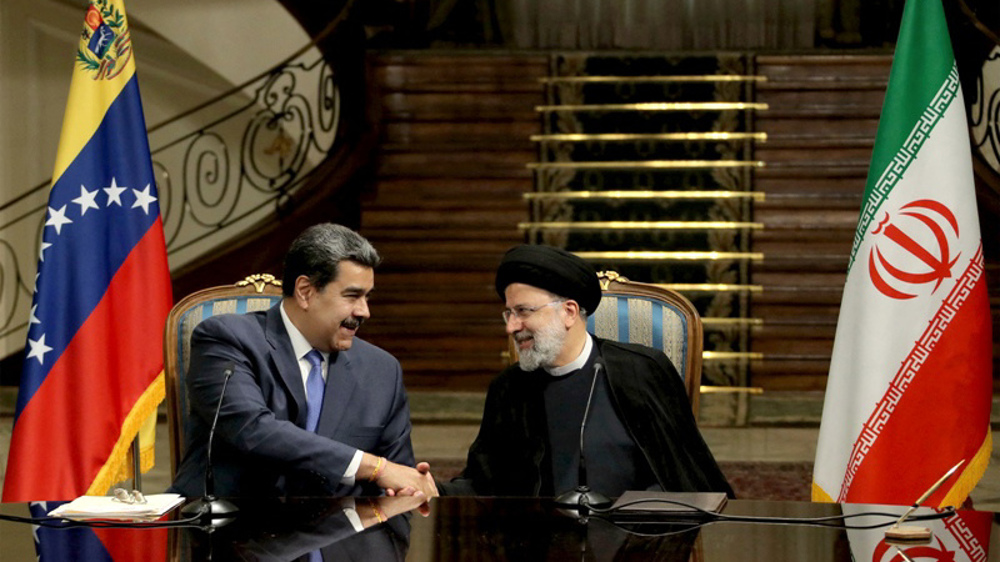
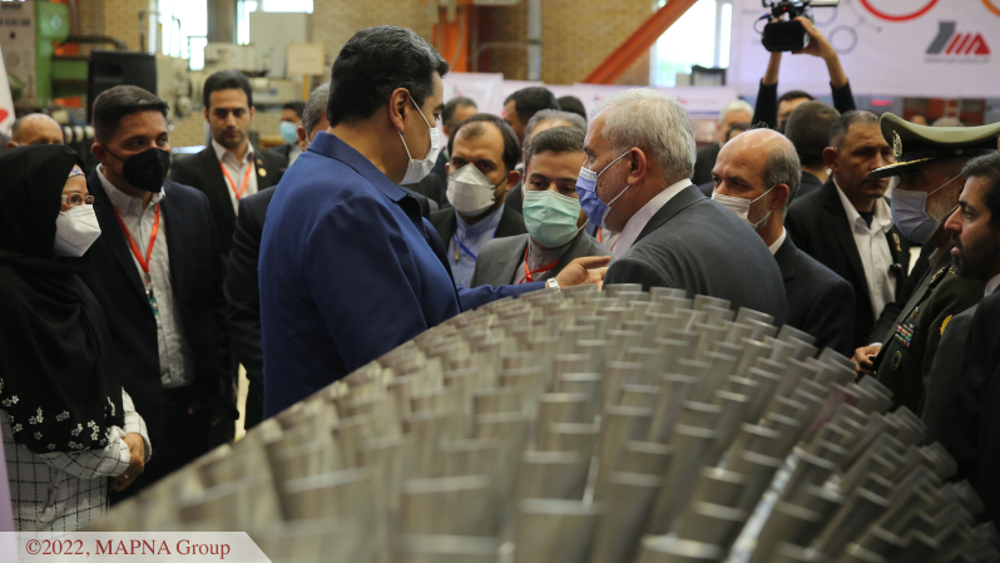

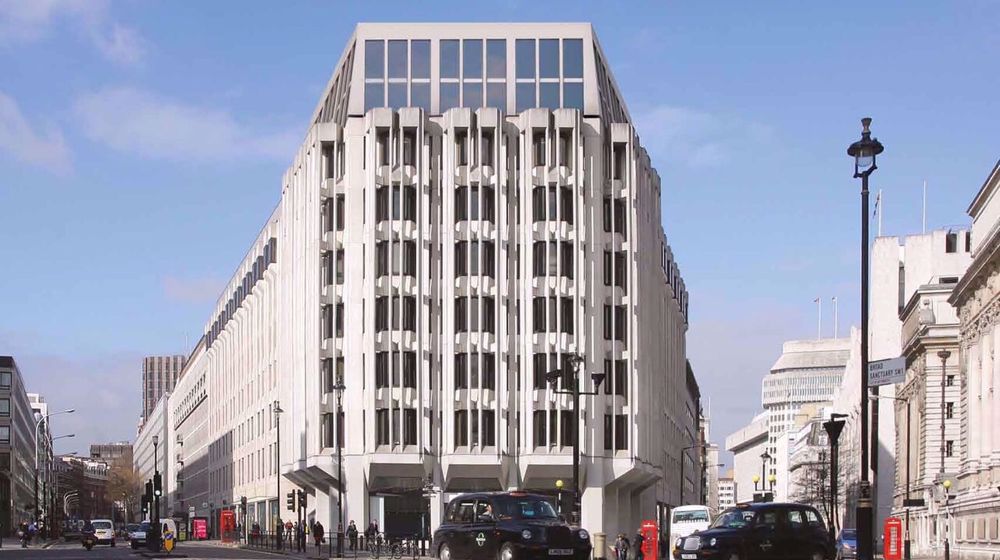
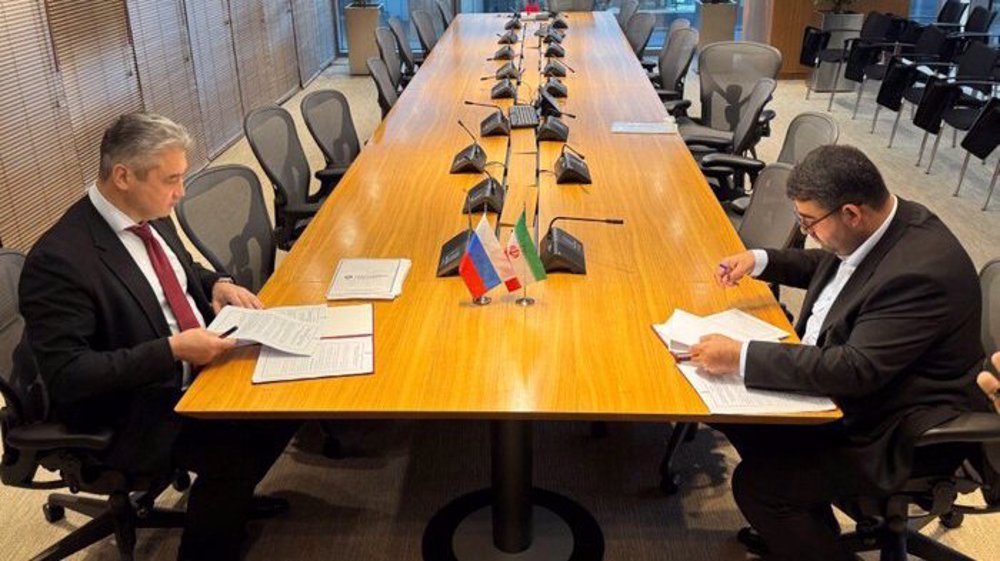



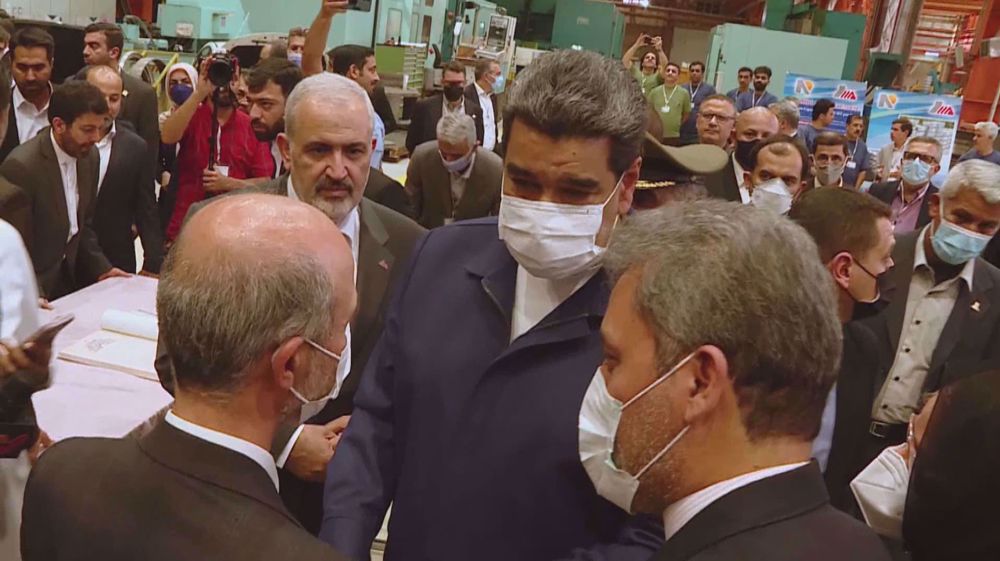
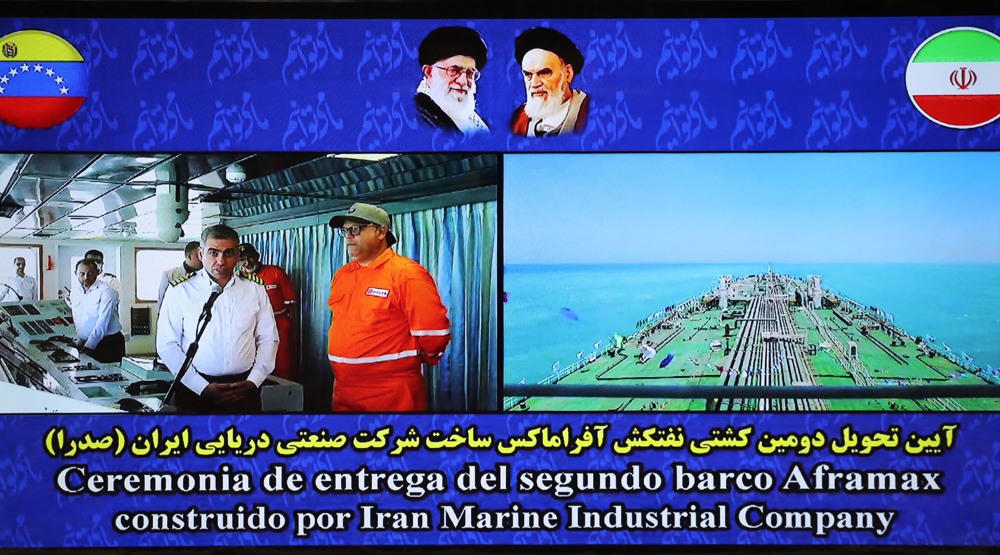
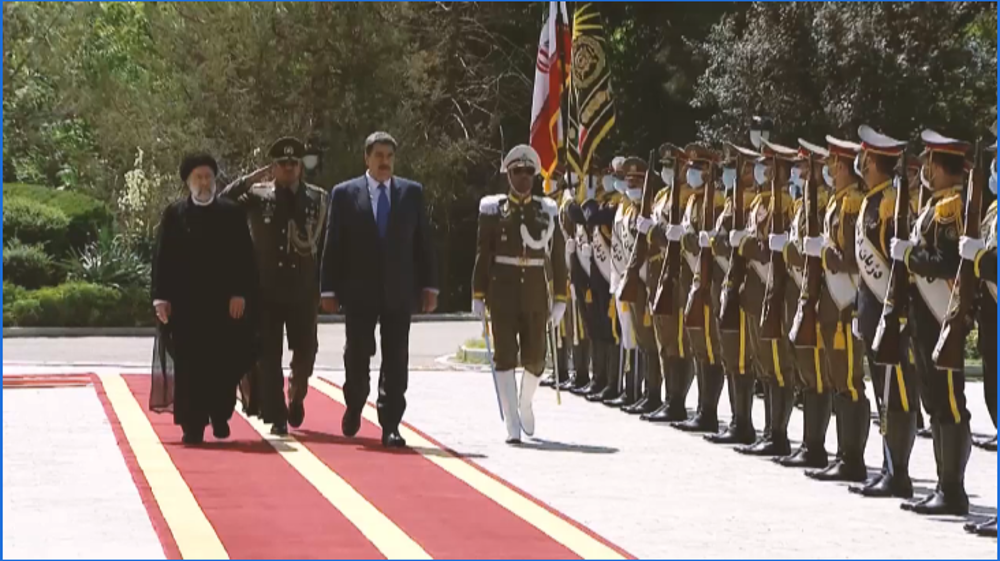
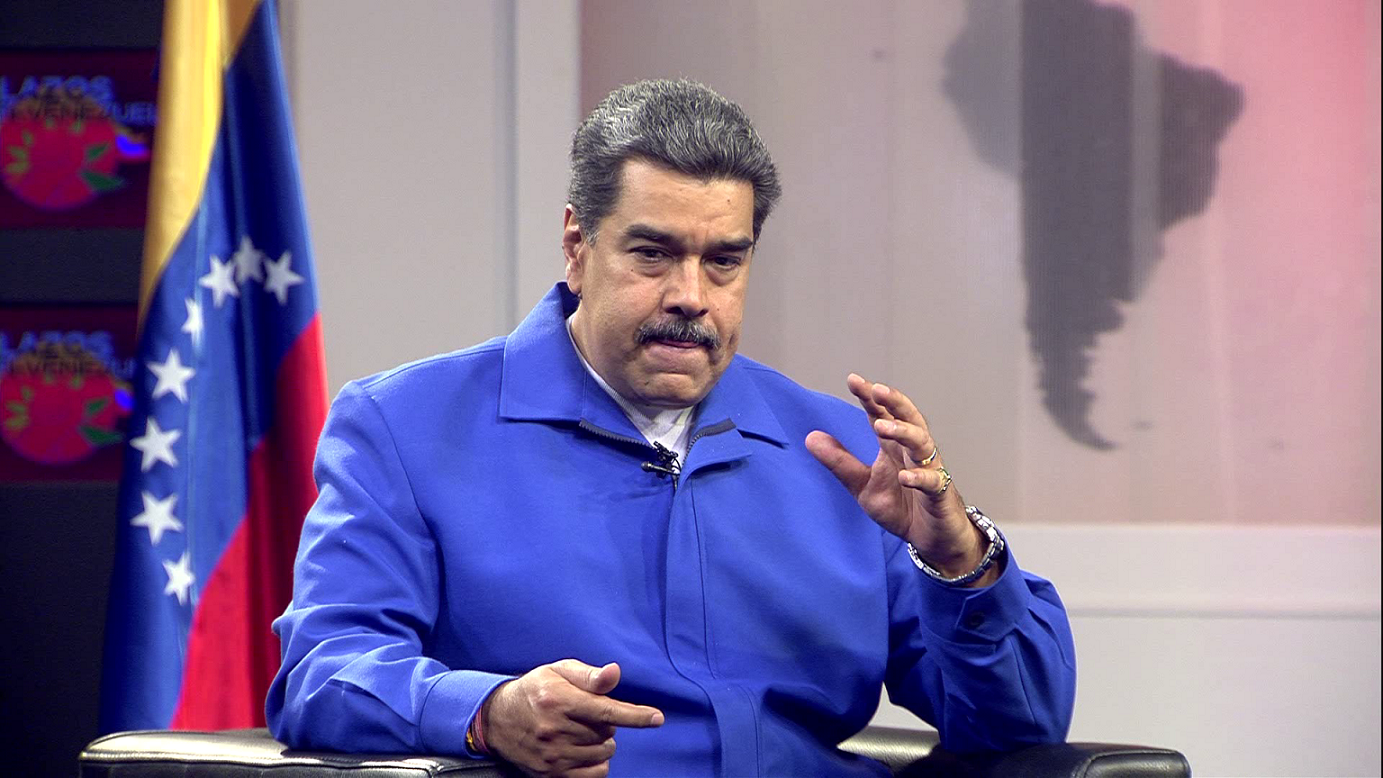

 This makes it easy to access the Press TV website
This makes it easy to access the Press TV website